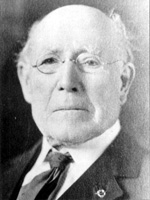SACRAMENTO – A federal judge blocked a landmark California labor law Friday that bars mandatory arbitration agreements, delivering a win for the Chamber of Commerce which argued Assembly Bill 51 outlawed a popular employment practice and violated federal law.
In a minute order, U.S. District Judge Kimberly Mueller barred state officials from enforcing several sections of the recently passed law that would have prevented businesses from requiring employees to waive their right to sue as a condition of employment. Mueller granted the chamber’s motion for a preliminary injunction in full and said she would issue a detailed order in the “coming days.”
Led by the chamber and the National Retail Federation, the business groups sued last December just weeks before the law was scheduled to go into effect. The plaintiffs cast the law – Assembly Bill 51 – as an attempt by the state and the unions that sponsored it to undermine arbitration contracts and argued it was pre-empted by federal law.
The law, signed this past October by Gov. Gavin Newsom, also allows workers to pursue damages and attorneys’ fees and in extreme cases opens employers up to potential criminal liability. The state says it’s meant to reduce employers’ leverage and protect workers from being discriminated and retaliated against for declining mandatory arbitration contracts.
Mueller granted the chamber’s last-second motion and temporarily enjoined the law two days before it was set to take effect. Less than two weeks later, Mueller again extended the ban, ruling that she needed more time to consider the arguments.
Chamber attorney Donald Falk said Mueller’s decision wasn’t a “bolt from the blue” and that the plaintiffs were “very gratified” with the order.
“She was very thorough and asked pointed questions, it was clear she was taking this matter very seriously,” Falk said of the Barack Obama appointee.
During oral arguments, Falk made the case that AB 51 is pre-empted by the Federal Arbitration Act and rattled off a list of U.S. Supreme Court opinions that he believes shatter the pro-worker law. He said the state was “singling out” mandatory arbitration agreements and violating the high court’s 2017 opinion in Kindred Nursing Centers v. Clark, where it reiterated that arbitration agreements must be put on equal footing with other contracts.
Arguing on behalf of California Attorney General Becerra and the various state labor officials named in the suit, Deputy Attorney General Chad Stegeman countered the statute was crafted within the boundaries of federal law as a way to stop businesses from requiring current and new workers to give up their rights in exchange for employment. He added parties can still come to voluntary arbitration deals under AB 51 and noted the law contained a clause that reads: “Nothing in this section is intended to invalidate a written arbitration agreement that is otherwise enforceable under the Federal Arbitration Act.”
“It’s focused on employer behavior, not agreements,” Stegeman responded. “We don’t target arbitration in the language.”
Falk, partner at Mayer Brown in San Francisco, pushed back that the clause was simply an attempt to “launder a statute that has illegal provisions by adding legal ones.”
While Becerra’s office said it is “reviewing the decision,” there remains a strong chance of appeal: Mueller acknowledged three weeks ago in her courtroom that the case “carves out a new path” and could be headed to the U.S. Supreme Court.
Falk said the chamber and the co-plaintiffs are prepared to file a motion for permanent judgment if the state doesn’t appeal.
“But the merits of our argument are pretty good, they may want to save their firepower,” Falk boasted.
Mueller’s order immediately bars the state from enforcing the heart of the law, including a section that states: “A person shall not, as a condition of employment, continued employment, or the receipt of any employment-related benefit, require any applicant for employment or any employee to waive any right…including the right to file and pursue a civil action or a complaint with, or otherwise notify, any state agency, other public prosecutor, law enforcement agency, or any court or other governmental entity of any alleged violation.”
California Chamber of Commerce president Allan Zaremberg, a co-plaintiff, said the potential criminal penalties for businesses was a bridge too far.
“We are pleased the court recognized the fact that placing businesses at risk for criminal penalties for a practice that has long been supported both by California and federal law was excessive,” Zaremberg said in a statement. “While it may not serve the best interests of the trial lawyers, expeditious resolution through the arbitration process serves the interests of employees and employers.”
Lawmakers passed similar bills in 2015 and 2018, but then-Governor Jerry Brown said they “plainly” violated federal laws and vetoed them. However, the bill’s author and sponsors said the third version was amended to better comply with federal law.
— By Nick Cahill
Like this:
Like Loading...
Related





 Tweet This
Tweet This Facebook
Facebook Digg This
Digg This Bookmark
Bookmark Stumble
Stumble RSS
RSS


























REAL NAMES ONLY: All posters must use their real individual or business name. This applies equally to Twitter account holders who use a nickname.
0 Comments
You can be the first one to leave a comment.